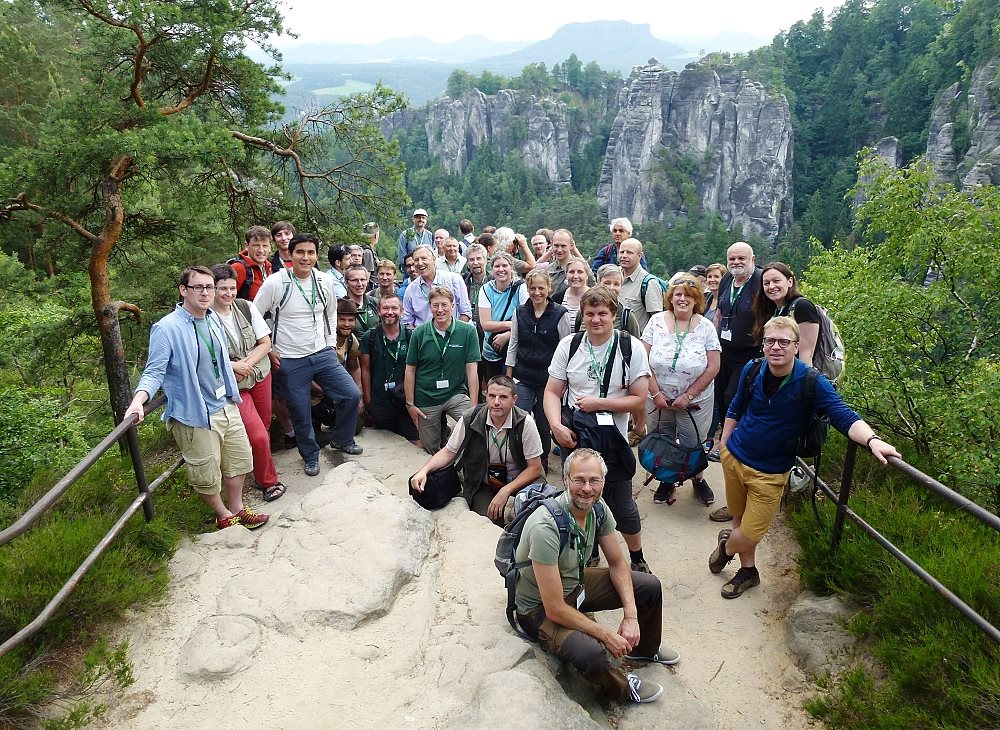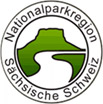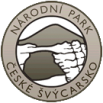Bohemian Switzerland © Vaclav Sojka
TransParcNet meeting 2016
Visitor management in Protected Areas was the topic of the TransParcNet Meeting 2016, the annual gathering of Protected Area professionals interested in Transboundary Cooperation. Over 80 participants coming from 13 countries (12 European and one overseas! Germany, Austria, Ireland, Italy, Czech Republic, Hungary, Norway, Poland, Netherlands, Peru, Slovenia, Finland, Croatia) shared their experiences on managing visitors in their Protected Areas. This year, the meeting took place in Bad Schandau (Germany) from the 7th-10th June and was kindly host by the Saxon-Bohemian Switzerland Transboundary Parks: Bohemian Switzerland National Park, Labské pískovce Protected Landscape Area (CZ) and Saxon Switzerland National Park (DE).
The main focus of the several presentations and working groups organised during the meeting concerned methods and tools to improve information about visitors in Protected Areas. Tools, such as surveys and census, were discussed by the participants, and best practices that are being implemented were highlighted. Among the TransParcNet, there is an increased development in the field of tourism, with key actions taking place, for a high-quality, ecologically compatible and environmentally friendly visitor management:
- a growing number of bilingual information centers are being implemented
- shared services for groups between parks
- cross-border public transport for hikers
- scientifically-based visitor management, with data collection tools implemented
- providing qualified information on natural features to visitors

Field trip © Jakub Kašpar
During the meeting, the international experts had also the chance to participate in several field trips and see in practice the activities taken by the Saxon-Bohemian Switzerland Transboundary Parks, who were praised by their peers for the connection of sustainable conservation and nature-friendly tourism development.
The heads of the administrative agencies in the Saxon and Bohemian Switzerland, Pavel Benda, Dr. Dietrich butter and Petr Kříž agree:
With the invitation to our European colleagues and specialists, we want to pass on our experiences and learn from other areas.
The meeting provides the appropriate framework for this exchange between specialists. Cross-border improvements are needed if we are to ensure low impact on nature and at the same time provide memorable natural experiences for visitors. Colleagues of Bohemia and Saxony prepared the meeting in close cooperation with the team of the National Park Centre in Bad Schandau, and the good performance is further evidence of the successful cooperation.
Jakub Kašpar, President of EUROPARC Section for Central and Eastern Europe and Karl-Friedrich Sinner from the Board of EUROPARC Germany e.V. reported projects that are being developed in the local sections of EUROPARC. In this TransParcNet meeting there was a special commission from Ireland: all eight Irish National Parks and the Irish Tourist Board, who brought also experts from Lima/Peru.
Transboundary Parks Programme
 EUROPARC Federation was represented by its vice-president Paulo Castro, who made a presentation about EUROPARC’s Transboundary Parks Programme: Following Nature’s Design. The programme provides the framework for cross-border cooperation of currently 23 protected areas in 13 European countries: from Norwegian/Russian reserves of the Barents Sea in the far north to the Slovenian/Italian Alps in the south. There are currently ten transboundary regions in Europe which have received the certificate according to the EUROPARC standards. Of the 16 national parks in Germany, only Saxon Switzerland and the Bavarian Forest are cooperating within the Transboundary Parks Programme. Contrasting with Czech Republic, where all four national parks are working cross-borders.
EUROPARC Federation was represented by its vice-president Paulo Castro, who made a presentation about EUROPARC’s Transboundary Parks Programme: Following Nature’s Design. The programme provides the framework for cross-border cooperation of currently 23 protected areas in 13 European countries: from Norwegian/Russian reserves of the Barents Sea in the far north to the Slovenian/Italian Alps in the south. There are currently ten transboundary regions in Europe which have received the certificate according to the EUROPARC standards. Of the 16 national parks in Germany, only Saxon Switzerland and the Bavarian Forest are cooperating within the Transboundary Parks Programme. Contrasting with Czech Republic, where all four national parks are working cross-borders.
Text provided by Saxon Switzerland National Park. Check the photos of the meeting in this album.
Downloads
- pdfTransParcNet 2016_Jakub Kaspar: Nature and tourism. Neverending story?
- pdfTransParcNet 2016_Pavel Becka_Maria Husslein: Visitor survey and route analysis – on the way to a cross border tourism strategy
- pdfTransParcNet 2016_Johannes Schamel: Social Carrying Capacity of Protected Areas
- pdfTransParcNet 2016_EUROPARC_Paulo Castro_: The European Charter for Sustainable Tourism: looking for synergies with TransParcNet
- pdfTransParcNet 2016_Karl-Friedrich Sinner: Results of the national park evaluation projects in Germany and Austria from the perspective of visitor management
- pdfTransParcNet 2016_Michael Hosek: Preparation of the Czech National Parks Evaluation
- pdfTransParcNet 2016_Workshop 1_Arne Arnberger_Maria Husslein: Visitor monitoring and management
- pdfTransParcNet 2016_Workshop 1_Tiia Kalske_Riina Tervo_Natalia Polikarpova: Monitoring and managing Brown Bears and Visitors…
- pdfTransParcNet 2016_Workshop 1_National Parks and Wildlife Service, Ireland
- pdfTransParcNet 2016_Workshop 2_Sabine Stab: Promoting acceptance through transboundary involvement of the regional population and regional branding
- pdfTransParcNet 2016_Workshop 2_Stefano Santi: Typical Products in Prealpi Giulie Nature Park - A narrow path towards sustainable development
- pdfTransParcNet 2016_Workshop 2_William Cormacan: Mayo - Dark Skies Project
- pdfTransParcNet 2016_Programme


